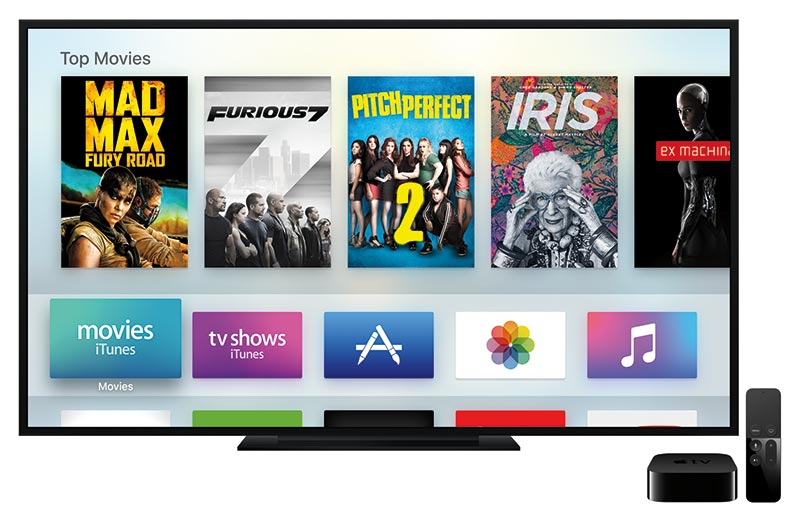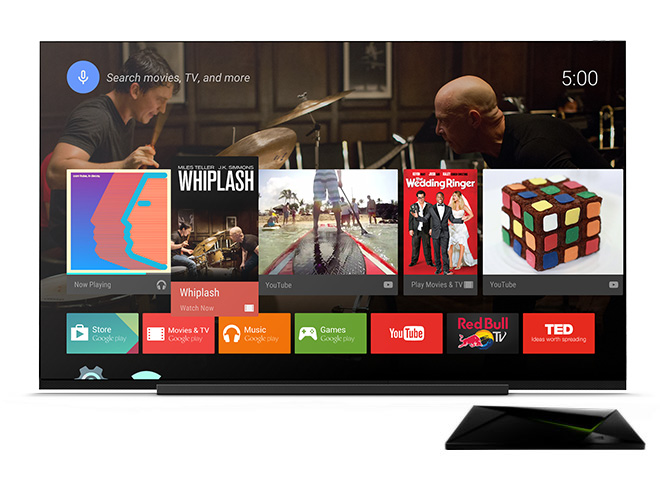The web’s lost opportunity to be on TV
Apple announced the new Apple TV yesterday. As many expected, it didn’t come with Safari. What was unexpected is that it doesn’t appear to have WebKit at all.
The utility of WebKit for app developers seems straightforward. Apps often use embedded web views to display information that it doesn’t make sense to duplicate in native code or for rendering links that people share.

But without webkit available for tvOS, there will be no embedded web views and no third party browsers.
We now have both Apple TV and Android TV without the web, and it’s a bloody shame.
I’m well aware of the argument that people don’t want to browse the web on TVs. I believe the jury is still out on that one, but even if I concede that point, there is still tremendous utility in using web technology for building apps for TVs.
The reason I started researching the web on TVs dates back to the original Google TV Showcase. There was a Vimeo app in that showcase that I loved.
I used that app for several months before I accidentally hit a button that converted it from the TV app that I knew into the standard Vimeo web page.
I had inadvertently discovered that the Vimeo app was just a different view of Vimeo’s normal web page. Vimeo calls this couch mode.
Nintendo, Samsung, LG, and others have all built app platforms on top of HTML. For years, Netflix built all of their TV apps on HTML5 before recently going native.
Web apps on TVs can be great experiences. Maybe it is because we don’t notice the lag as much when we’re using remote controls instead of touching the interface directly. Maybe it is because the interfaces for most non-game, TV apps are fairly simple.
Whatever the reason, building TV apps using web technology just seemed to work. Bridging the gap between native and web apps on TVs was easier than it was on mobile.
But year after year at Google I/O when I’d try to talk to people about Chrome on TVs, I wouldn’t get anywhere. Google TV shipped with Chrome, but it was a forked version that the Chrome team wasn’t responsible for and grumbled about.
I remember trying desperately to figure out who to talk to about the browser on Google TV. I was repeatedly and humorously pointed to Chris Wilson. Chris hadn’t working on Google TV in months. It became a running joke between the two of us.
A couple years later, Google announced that their TV product would be called Android TV. Google touted how the TV would finally be running the same version of Android as phones and tablets. It would be kept up to date.
Except it would no longer have a browser.
At the time, Microsoft showed more interest in the web on TVs than Google. That may still be the case. I haven’t checked in awhile. Firefox OS has recently moved to TVs and Opera still has a TV browser. So all hope isn’t lost.
Back in 2012, I was trying to muster enthusiasm in browser makers for working on the web on TVs. It seemed likely that TVs were going to be the next platform and instead of playing catch up like the web did on phones, we could be ready for the web on TVs from the beginning.
I feared playing catch up again. In retrospect, I should have feared much worse.
The two biggest mobile operating systems are now on TVs. One started with a browser, but no longer has one. The other just shipped without even an embedded web view.
From what I’ve seen, the web on TV could have been a star. What a missed opportunity.

Jason Grigsby is one of the co-founders of Cloud Four, Mobile Portland and Responsive Field Day. He is the author of Progressive Web Apps from A Book Apart. Follow him at @grigs.

